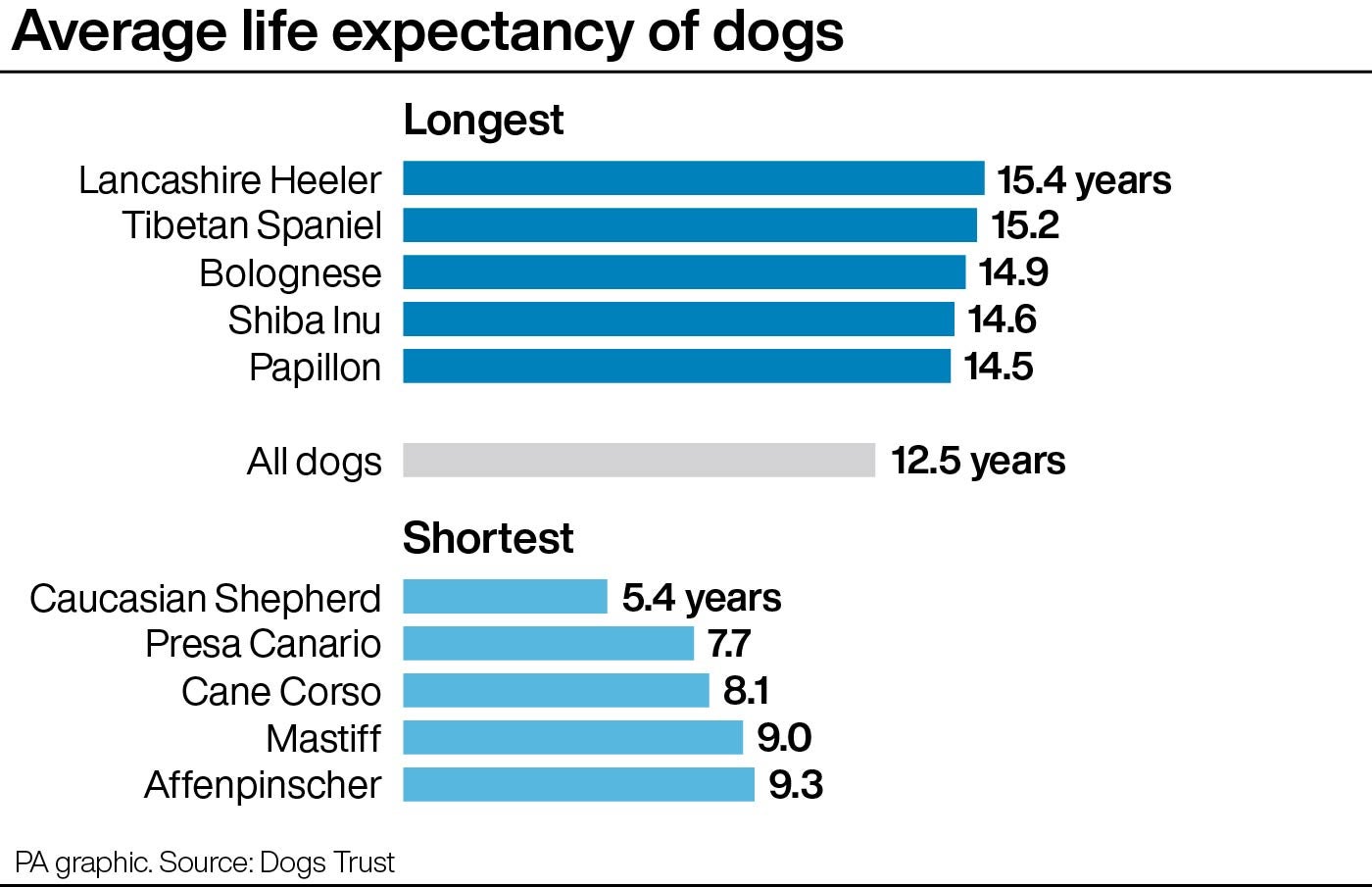The secret to why some dogs live longer than others
Canine life expectancy found to vary significantly between breed, body size and face shape

The largest study of its kind has revealed new insights into which breeds of dogs tend to live longer than others. The research, which looked at nearly 600,000 pets aross the UK, found life expectancy to vary significantly between breed, body size and face shape.
The average life expectancy of all dogs in the UK was found to be around 12.5 years – with typical lifespans ranging from just 5.4 years to 15.4 across all the breeds studied.
Despite being classed as a “vulnerable native breed” by the Kennel Club, Lancashire heelers – believed to be a cross between the Welsh corgi and the Manchester terrier – were found to have the longest average life expectancy.
Conversely, Caucasian shepherds (5.4 years), were found to have the shortest expected lifespan, followed by Presa Canario (7.7 years) and Cane Corso mastiffs (8.1 years).

The Dogs Trust research, published in the journal Scientific Reports, found that flat-faced dogs such as pugs and French bulldogs have a 40 per cent higher risk of living shorter lives than other breeds.
Medium-sized brachycephalic (flat-faced) dogs were found to have the lowest average life expectancies of 9.1 years for males and 9.6 years for females.

Despite their significant health challenges – which include breathing problems, digestive issues, eye and teeth diseases – researchers said that the popularity of flat-faced breeds such as pugs (11.6 years) and French bulldogs (9.8 years) has been rising.
These issues have “triggered a health and welfare crisis for flat-faced dog breeds”, said Dr Dan O’Neill, chair of the Brachycephalic Working Group , which is made up of veterinary, breeder and welfare organisations.
“This new research underlines these major health issues by revealing that flat-faced dogs live 1.5 years shorter lives than typical dogs,” he said.
“It is crucial that the public prioritises health over what they might think look ‘cute’ and we urge anyone considering getting a flat-faced breed to ‘stop and think’ and to ensure that they acquire a dog with the best chances of a long and happy life.”

The study, led by Dr Kirsten McMillan of the Dogs Trust, gathered data spanning 150 pure breeds and crossbreeds from 18 different UK sources, including breed registries, vets, pet insurance companies, animal welfare charities, and academic institutions.
Alongside the Lancashire heeler, Tibetan spaniel (15.2 years), and miniature dachshund (14.0 years), were found to live the longest. Labradors (13.1 years) and cocker spaniels (13.3 years), also lived longer than the average age.
The team also found that large-sized breeds to have a 20 per cent increased risk of shorter lifespan than small-sized breeds.

Female dogs (12.7 years) were found to live longer than males (12.4 years), while pure breeds (12.7 years) had a higher expected lifespan than crossbreeds (12 years) – suggesting that dog owners who opt for crossbreeds for the perceived superiority of their genetic diversity may be barking up the wrong tree.
Meanwhile, small long-nosed dogs such as whippets had the highest average life expectancies of 13.3 years.
Dr McMillan said: “We found life expectancy varies between breed, body size, face shape and sex - this is the first study where all of these elements have been compared and contrasted alongside evolutionary history.
“Many of these factors interact to compound the issue, for example medium-sized, flat-faced male dogs are nearly three times more likely to live shorter lives than small-sized, long-faced females.
“The findings have important implications for the canine pedigree health debate; although this study does not determine risk factors for early death, it does highlight groups that require further investigation.
“We hope this study can help breeders, policymakers, funding bodies and welfare organisations make informed decisions to improve the welfare of companion dogs, as well as helping owners understand the range of factors that influence health and longevity, especially when acquiring a dog.”
Additional reporting by PA
Join our commenting forum
Join thought-provoking conversations, follow other Independent readers and see their replies
Comments
Bookmark popover
Removed from bookmarks